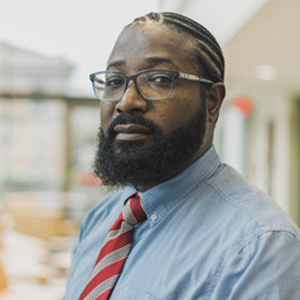Online racial harassment leads to lower academic confidence for Black and Hispanic students
Online racial discrimination or harassment has a negative effect on the academic and emotional well-being of students of color. That is the key finding from a study I published recently in the Journal of Youth and Adolescence.
For the study, I surveyed 356 Black and Hispanic teens across the U.S. I analyzed their responses to questions about their social media use and experiences. I also asked about their mental health and beliefs about their academic potential. The adolescents were 16 years old on average.

Girls in this study had on average one to three more social media accounts than boys. Girls reported depression levels that were four points higher than those of boys. This suggests more depressive symptoms among girls. Black teens reported social media activity that was three points greater than that of Hispanic teens. They also reported more online experiences of discrimination – almost 10% more – than their Hispanic counterparts.
Black and Hispanic teens who used social media more were more likely than not to encounter online racial harassment or discrimination, whether as direct victims or observing their racial group or another racial group being demeaned or discredited. Brendesha Tynes, a researcher at the University of Southern California, describes online discrimination as “disparaging remarks, symbols, images, behaviors that inflict harm through the use of computers, cell phones and other electronic devices.”
Additionally, students who observed more online racial harassment or discrimination suffered more depression and anxiety than those with fewer of these negative online experiences. Higher levels of depression and anxiety undermined Black and Hispanic adolescents’ confidence in their academic abilities.
Students didn’t experience more depression and anxiety only when they personally, or members of their own racial or ethnic group, were targeted. They also experienced more depression and anxiety when they observed other people and racial or ethnic groups being targeted.
Why it matters
When teens encountered online discrimination during their social media use, they had fewer positive beliefs about their academic skills. This is noteworthy, because if it weren’t for this discrimination, teens who use social media often had more positive perceptions of their academic skills and abilities than those who used less social media.
Online racial discrimination and harassment represents a unique risk for teenagers of color. Not only are they more likely to see and post more race-related content, but when this race-related content is negative it has harmful effects on their mental health, academics and overall behavior.
If society has a better understanding of how online racial discrimination and harassment affects teenagers’ mental health and academic well-being, then schools, parents and youth agencies could be better able to help reduce the harm.
What other research is being done
My lab and other researchers are conducting studies to determine other effects that online harassment may have on young people of color. For instance, I am currently exploring whether these negative online experiences may influence young people to engage in social and political activism. This includes protests, voting, canvassing, writing to legislators and community organizing.
This article is republished from The Conversation under a Creative Commons license. Read the original article.
![]()
Enjoy reading ASBMB Today?
Become a member to receive the print edition four times a year and the digital edition monthly.
Learn moreFeatured jobs
from the ASBMB career center
Get the latest from ASBMB Today
Enter your email address, and we’ll send you a weekly email with recent articles, interviews and more.
Latest in Careers
Careers highlights or most popular articles

Defining JNKs: Targets for drug discovery
Roger Davis will receive the Bert and Natalie Vallee Award in Biomedical Science at the ASBMB Annual Meeting, March 7–10, just outside of Washington, D.C.

Upcoming opportunities
No matter where you are in your career and what future path you aspire to, everyone needs leadership skills. Join ASBMB for practical strategies for building and practicing leadership skills.

Close out ASBMB 2026 with a bang
The closing reception of the 2026 ASBMB Annual Meeting will be held at the Torpedo Factory Art Center in Alexandra, Virginia.

Redefining lipid biology from droplets to ferroptosis
James Olzmann will receive the ASBMB Avanti Award in Lipids at the ASBMB Annual Meeting, March 7–10, just outside of Washington, D.C.

Creating change in biochemistry education
Pamela Mertz will receive the ASBMB William C. Rose Award for Exemplary Contributions to Education at the ASBMB Annual Meeting, March 7-10 in Washington, D.C.

Trainee mentorship as immortality
Suzanne Barbour will receive the ASBMB Sustained Leadership Award at the ASBMB Annual Meeting, March 7-10 in Washington, D.C.

